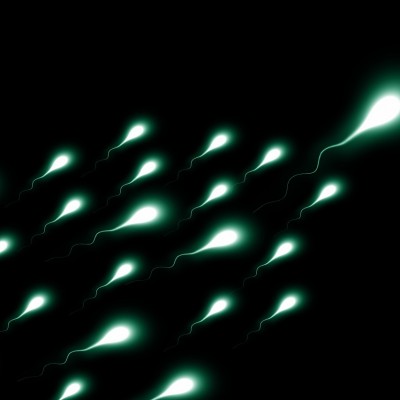
Written by Gina Fox, FGHG Naturopath (This article was originally published on www.conceivebaby.com.au)
Trying to conceive takes time and once you’ve made the decision to have a baby frustration, impatience and sadness are just three of the emotions that can grow with each menstrual cycle that passes. It’s worth reminding ourselves that we have a 20% chance of conceiving in any one cycle and that 80% of couples will be pregnant within 12 months. Having that longer term view and doing things to improve your chances of conceiving can be a good focus while you wait.
This impatience for results and lack of understanding about timing is one of the reasons why many couples embark on IVF treatment before they really need to. We find that many couples benefit from focusing on some key basics they do have control of. Addressing these things increases the chance of conception within a reasonable time frame and allows women to exert some control over their ability to fall pregnant.
Here are 5 steps to take before IVF:
Have sex at the right time of the month
Know when your fertile window is so that you have sex on a day when you increase your chances of conception. You only have at the very outside 6 days in your cycle that you may be able to become pregnant and that’s if the sperm lives for 5 days and the egg for 1 day. The most likely days you will conceive are 2 days prior to ovulation and the day of ovulation. If you have sex on one of these days then your chances of becoming pregnant in that cycle dramatically increases to 27-33%.
The funny thing is that although 70% of women in a recent Australian study thought they knew when they were ovulating, only 13% accurately estimated their day of ovulation.
If you are relying on an app for this they can be grossly inaccurate. It’s much more accurate is to keep track of your vaginal mucus changes and recognise when your mucus is wetter and more stretchy. Ovulation predictor kits can also help to more accurately pinpoint your fertile window. For more information on this go to Your fertility website and watch the video by Kerry Hampton on pinpointing your ovulation (http://yourfertility.org.au/for-women/timing-and-conception/).
Check that your weight is in a healthy range
If you are overweight then you can improve your chances of conceiving by committing to healthy eating and exercising and reducing weight even by a little. A common measure of whether you are over or under weight is the BMI calculator which you will easily find on line and by putting your height and weight into the calculator it will work out if you fall in the 18.5-25 healthy BMI range.
For women who are overweight and have PCOS reducing weight by as little as 5 % can significantly improve regular ovulation and your chance of conception.
Being underweight can also affect hormones and reduce fertility. Underweight women may be twice as likely to take over a year to conceive compared with healthy weight women. A man’s weight is also a factor, so father’s-to-be also need to trim down to improve fertility.
Three tips to start off a healthy weight plan:
– swap soft drinks and alcohol for water;
– make half you plate vegetables or salad at lunch and dinner with a palm size of lean protein such as meat, fish, eggs or pulses;
– get moving more by standing every 40 minutes from your desk, walking rather than taking the car to the shops and taking the stairs.
Have you stopped smoking and drinking?
Smoking affects egg and sperm development and can damage the DNA in both eggs and sperm. Smoking not only reduces your chances of getting pregnant but also puts you and your baby at risk of pregnancy and birth complications and birth defects.
Even if a woman has never smoked, her partners smoking makes her up to 30% more likely to miscarry.
It’s much easier to quit smoking with your partner so make a plan to do it together and seek help from a counsellor or acupuncturist to give you extra support.
It’s known that drinking alcohol in large quantities reduces your chance of conceiving but low and moderate drinking may also have an impact. For men alcohol can cause impotence, reduce libido and also reduces sperm quality and so reduces fertility. Because of the known toxic effects on a baby’s development the National Health and Medical Research Council recommend that not drinking is the safest option for women who are planning to conceive or who are pregnant.
Clean up your environment
Reducing the levels of environmental toxins that have been shown to affect DNA cellular health can affect your Simple steps to take include:
- increase your intake of organic food;
- buy non chemical cleaners including laundry powder;
- start to use natural face and body creams such as coconut or almond oil;
- men keep your mobile phone away from the reproductive area by not carrying it in your trouser pocket and at night keep on flight mode if you have it by your bedside.
Optimum nutrition
Research shows that optimum nutrition in the pre-conception period three months prior to conception is associated with a lower rate of birth defects. If you eat well your eggs and sperm will benefit from all the nutrients required for healthy DNA. Eating for a healthy weight and to support the growth and development of sperm, eggs and healthy hormones we suggest referring to the Fertility Boosting Diet Summary on our Fertile Ground Health Group website (www.fertileground.com.au) and for more information and recipes read The Fertility Diet by Tasha Jennings and The Fertility Food Map by Petra Joly. Or if you feel like you could benefit from some more specific nutritional testing and advice, you could make an appointment with a Fertile Ground Health Group Naturopath.
By taking some control of your own health, most women and couples find they feel happier and healthier and regain a sense of control over their own fertility.
Of course expert help is not far away if you need further support to achieve your aims and make changes, or if you feel you have more complex issues to manage. For more information on support available for your fertility, explore our Trying to Conceive information and other related FGHG blog articles:
Fertility Charting Instructions
Marijuana and your fertility: Are my eggs / sperm stoned too?
Acupuncture to help you quit smoking
References
Hampton K, Mazza D; Fertility-awareness knowledge, attitudes and practices of women attending general practice. Aust Fam Physician. 2015;44(11):840-5.
Gina Fox is a naturopath with over 15 years’ experience. She trained under Francesca Naish (author of Better Babies) and has a Masters in Reproductive Medicine. As well as being an experienced clinician she is a speaker, naturopathic lecturer and student clinic supervisor.
Gina is highly skilled in providing naturopathic care for women’s health issues, pre-conception health, infertility, IVF support, pregnancy care and through menopause. She treats a wide range of issues including recurrent miscarriage, thyroid, auto-immune antibodies and she has seen good results working with men to improve sperm quality.




 Charmaine Dennis
Charmaine Dennis

